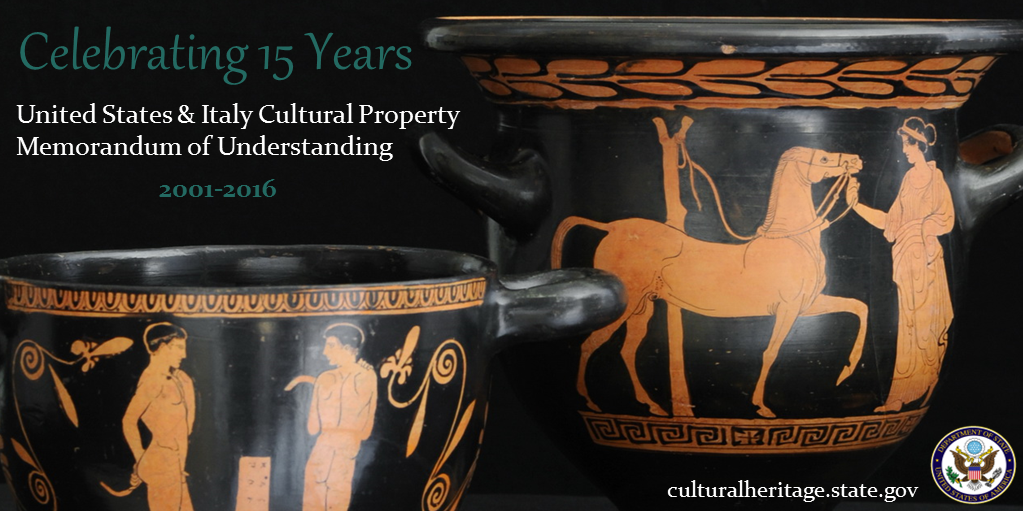On January 19, 2016 the Governments of the United States and the Italian Republic extended, for the third time, the Memorandum of Understanding (MOU) Concerning the Imposition of Import Restriction on Categories of Archaeological Material Representing the Pre-Classical, Classical and Imperial Roman Periods of Italy. The memorandum, first signed in 2001, is in response to a request from the Government of the Italian Republic made under Article 9 of the 1970 UNESCO Convention on the Means of Prohibiting and Preventing the Illicit Import, Export and Transfer of Ownership of Cultural Property. Archaeological sites in Italy continue to be in jeopardy from pillage where looters destroy evidence of ancient civilizations to retrieve priceless objects that are valuable to the international antiquities market.
Without the proper scientific recording of materials from a site, it is impossible to reconstruct or understand the culture that produced it. The ultimate result is the irretrievable loss of historical information. The loss is also felt within the local community, and the nation at large, where cultural heritage plays an integral role in economic development through sustainable tourism, and in building identity and a “sense of place.” Import restrictions enacted through the memorandum are intended to reduce the incentive for this pillage while at the same time increasing legal access to Italy’s cultural heritage through loans, scientific excavations, and professional exchanges.
A March 23 event at the Embassy of Italy in Washington, DC co-organized with the U.S. Department of State brought together preeminent speakers on the subject of antiquities trafficking in Italy as well as representatives of those institutions which have directly benefited from the memorandum provisions including museums, universities, and professional societies. In her remarks, Assistant Secretary of State for Educational and Cultural Affairs Evan Ryan thanked the Cultural Property Advisory Committee for its role in the process of extending the memorandum with Italy for another 5 years. She also stressed the need to “acknowledge that antiquities trafficking is an issue of global proportions with ties to transnational organized crime and terrorist organizations. As the threat to heritage increases worldwide so too should our diligence. By unifying policy makers, law enforcement, cultural heritage professionals, relevant international organizations like UNESCO, and other stakeholders under a common integrated approach, we will address antiquities trafficking with the full seriousness it deserves.”
For more information about how memoranda of these types are entered into by the United States, visit the Cultural Heritage Center’s cultural property protection website.




